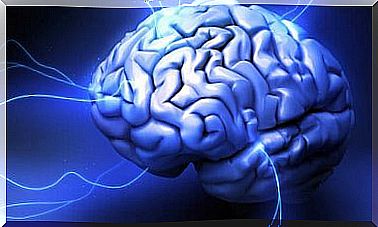Cognitive Deterioration Associated With Drug Use

Is there cognitive impairment associated with drug use? The answer seems to be clear: yes. Drug use affects the brain in one way or another, sooner or later. Furthermore, this always happens in a negative way.
Data show that each year more than 20,000 people die prematurely as a result of excessive alcohol consumption. We cannot forget that alcohol is also a drug, although its consumption is normalized. But what about the rest of the drugs?
Every year, thousands of people are admitted to hospitals for psychosis caused by all kinds of drugs. The trend is for this number to increase. In the last 10 years, the increase in the number of hospitalizations for drug-induced psychosis was 103%.
There is a good deal of research supporting the idea of a profound deterioration associated with frequent drug use. Furthermore, there is a point from which the impact of this consumption seems to be very difficult to reverse, even though such consumption is interrupted indefinitely.
Why do people take drugs?
It is not easy to answer, in fact it would be impossible to bring all cases together in a single case. It is true that today there is an authentic social concern about which there is a great lack of knowledge, also social. People talk about drugs repeating topics and without restricting many fallacies and many nonsensical statements.
Drugs are generally identified with two conditioning factors: youth and crime. Therefore, the information we can provide is already biased from the outset. Drug abuse creates serious health problems, in addition to being the motivator of many crimes and the reason why many families end up destroyed.

Thus, frequent and intense drug use has an impact on the body for which it is not prepared. On the other hand, we cannot isolate these recreationally used substances from the society that made possible the explosion in their consumption. Furthermore, in many cases, the social environment not only appears as a facilitator, but also as a motivator, normalizing or distorting the negative effects of consumption or intensifying the problems the person wants to escape from.
How does the cognitive impairment associated with drug use occur?
Drug abuse can cause morphological changes in the structure of the brain. These morphological changes have the following effects:
- Loss of brain volume.
- Gray matter percentage reductions.
- Ventricular cerebrospinal fluid volume reductions.
- Enlargement of the pericortical space and both lateral ventricles.
- Decrease in the size of neurons.
- Neuronal death.
- Brain atrophy.
Likewise, they can produce harmful effects through the metabolic reorganization of synaptic connectivity circuits. This metabolic reorganization occurs as a consequence of the processes of tolerance, abstinence and detoxification.
These processes, common to all addictions, cause biochemical adaptations in the dopamine, serotonin, and noradrenaline projection systems. These neurotransmitters interact with glutamate receptors and can block long-term potentiation and depression mechanisms in the hippocampus and nucleus accumbens.
Finally, they can cause changes in cerebral vascularization, vasoconstriction, parenchymal and subarachnoid cerebral hemorrhage and ischemic cerebral infarction. It seems, then, that there are many negative consequences of substance abuse, right?
What do studies say about cognitive impairment associated with drug use?
We already know that the cognitive deterioration associated with drug use is a reality. But how does drug use affect cognitive performance?
With regard to memory, people who consume more alcohol and cannabis, and less cocaine, have a greater deficit in working memory than in immediate memory. The longer the consumption duration, the greater the impact on working memory.

In terms of executive functions, patients with a longer duration of cannabis and alcohol consumption have a worse capacity for interference. This means that they show less inhibition of automatic responses.
It is also observed that they have a much reduced attention, needing more time to perform activities that demand logical and sequential reasoning. However, they present verbal fluency more preserved in the phonological scope compared to other types of consumption.
As we can see, drug use causes neuropsychological and neuroanatomical changes. These changes, in turn, cause a functional neuroadaptation in cognitive, motivational, behavioral and emotional functions that influence the daily psychosocial functioning and quality of life of substance-dependent people.
These altered functions have to do with the capacity for attention, concentration, integration, information processing and execution of action plans. Furthermore, these modifications would act as variables that support consumption within a broader and more ideological explanatory model of biopsychosocial dependence.









